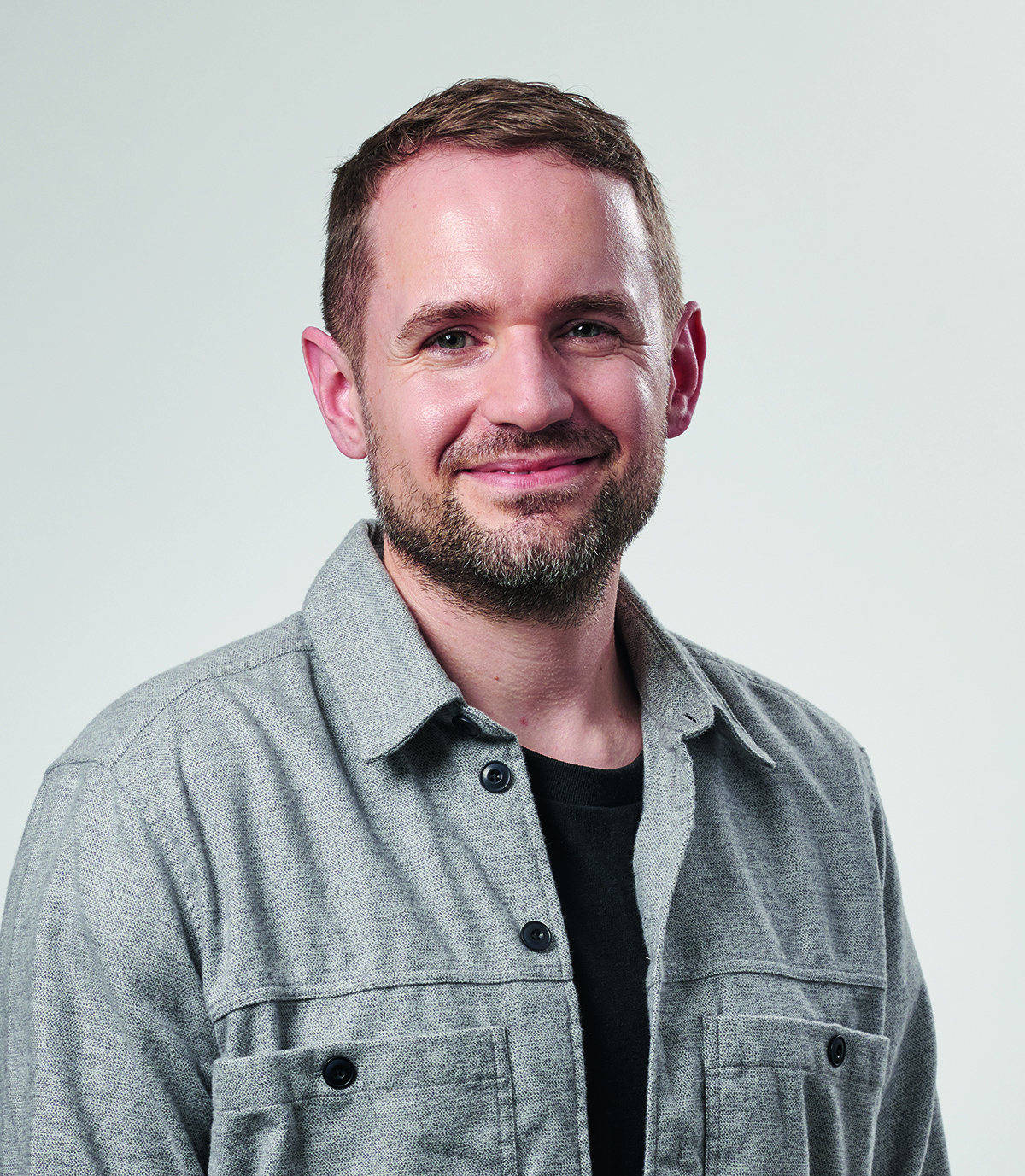Jonah Hill reflects on his actor-to-director career as skateboarding passion project Mid90s arrives in cinemas
“Acting gets you a front row seat to every department” – Jonah Hill on his journey from actor to writer-director
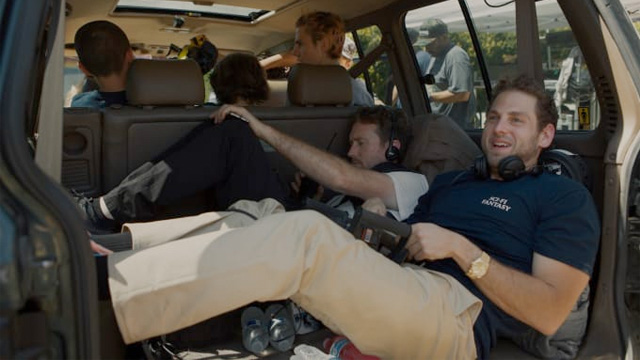
It’s a cold day in New York when Jonah Hill sits down to talk to our sister publication Total Film magazine in February 2019. “It’s like, freezing!” he laugh-shivers. He’s taking a break from his next writing project to talk about his directorial debut, Mid90s, which premiered at the Toronto International Film Festival to positive reviews last September, before opening in the US. It comes to the UK next month.
It’s no surprise that the film was warmly received. It’s a remarkably assured debut, with a keen sense of time, place and character. Set in LA during the middle of the 1990s, it tells the story of a young kid, Stevie (relative unknown Sunny Suljic, who also happened to play Atreus in 2018's PS4 blockbuster, God of War), who falls in with a crowd of slightly older kids at a skateboard shop, and spends a summer with the cool crowd, finding his tribe, hitting personal milestones, and running into trouble. Stevie also grows distant from his single mother Dabney (Katherine Waterston) and aggressive older brother Ian (Lucas Hedges).
Mid90s has clearly been a passion project for Hill, who spent four years honing the screenplay before directing it. It’s not a project you’d associate with an actor-turned-director, given that it’s low-budget, unshowy and worlds apart from Hill’s on-screen work. But it wouldn’t be the first time Hill has subverted expectations. Born in Los Angeles in 1983, his earliest ambitions were as a playwright, until screen stardom came unexpectedly calling. A friendship with Dustin Hoffman’s children led to an audition for I Heart Huckabees, which would become his first screen appearance.
A string of Judd Apatow films followed (Hill has collaborated with the comedy power-player several times), most notably Superbad, which was his first leading role. More comedies, supporting parts and animated voicework followed, until he was seen in a new light in 2011’s Moneyball, an awards-baiting drama in which he appeared opposite Brad Pitt, and received an Oscar nomination for his troubles. That, combined with comedy franchise success with 21 Jump Street (on which Hill has a story credit), saw him diversify and work for such directors as Quentin Tarantino (Django Unchained), Martin Scorsese (The Wolf of Wall Street) and the Coen brothers (Hail, Caesar!).
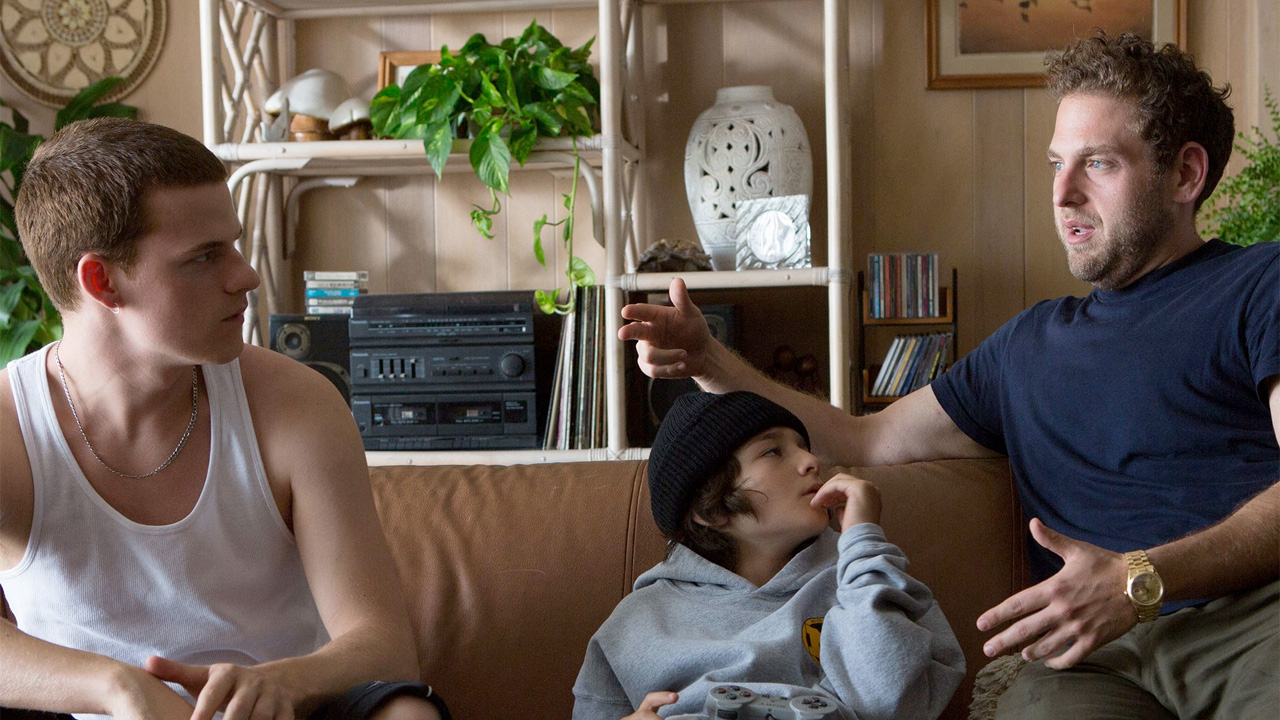
Having been somewhat sidetracked by his acting success, Hill’s clearly relieved to have finally made good on his ambition to write and direct. During our conversation, he comes across as thoughtful and sharp, although he’s not the joker one might expect if you’ve grown up on his ribald comedies. Having successfully managed to escape a typecasting pigeonhole, he’s somewhat reticent to talk about his biggest comedy hits. Even when we ask if he discovered he had a gift for making people laugh at a young age, he brushes off the topic. “It’s a long complicated question, with such a long complicated answer,” he sighs. “I won’t even bore you with it.” But Hill comes alive with infectious enthusiasm when talking about shepherding his directorial debut to the screen, and beams on the subject of his young cast, the filmmaking process, and the mentors who inspired him, as TF is about to find out…
To go to the very beginning of this process for you, where did the idea for Mid90s come from, and when did you start work on the screenplay?
I was writing a play with Spike Jonze, who is a collaborator and mentor and friend. He’s the best guy. We were writing a play together, and we were doing this thing where he was writing a movie, and I was writing a movie, and we were sharing a story of the movie every day. And in that, the other person sees flaws. They see what’s working and what’s not working. I was writing this first movie, and the B-story kept flashing back to the main character, when he was young and skateboarding with friends. Spike was saying, “You seem far more excited about that than the A-story.” I went, “Oh, OK, well, maybe I should just do it like that.” And that’s when I started. It’s one of those moments where you’re like, “Oh, why didn’t you just write about /that/?”
Bringing all the latest movie news, features, and reviews to your inbox
Were you drawing more on feelings than something specifically autobiographical?
Yeah, it’s not like a biopic of my life, with this character and stuff. But a lot of scenes were… you know, people that reminded me of people, and mixing people together. Some things happened. Some things I completely made up. There’s no rhyme or reason to it. But I think the feelings of it are really about finding your crowd, and growing up, and stuff like that.
Was it a cathartic process, working through those feelings?
Yeah, I think… [pause] Writing something, no matter what it is, is some form of understanding and processing good and bad things that have happened in your life. It could be a movie set in outer space, but you’re still putting feelings into those things. But for me, I don’t see a world where I write movies where it’s not some form of digesting and processing the experience of being a person, you know?
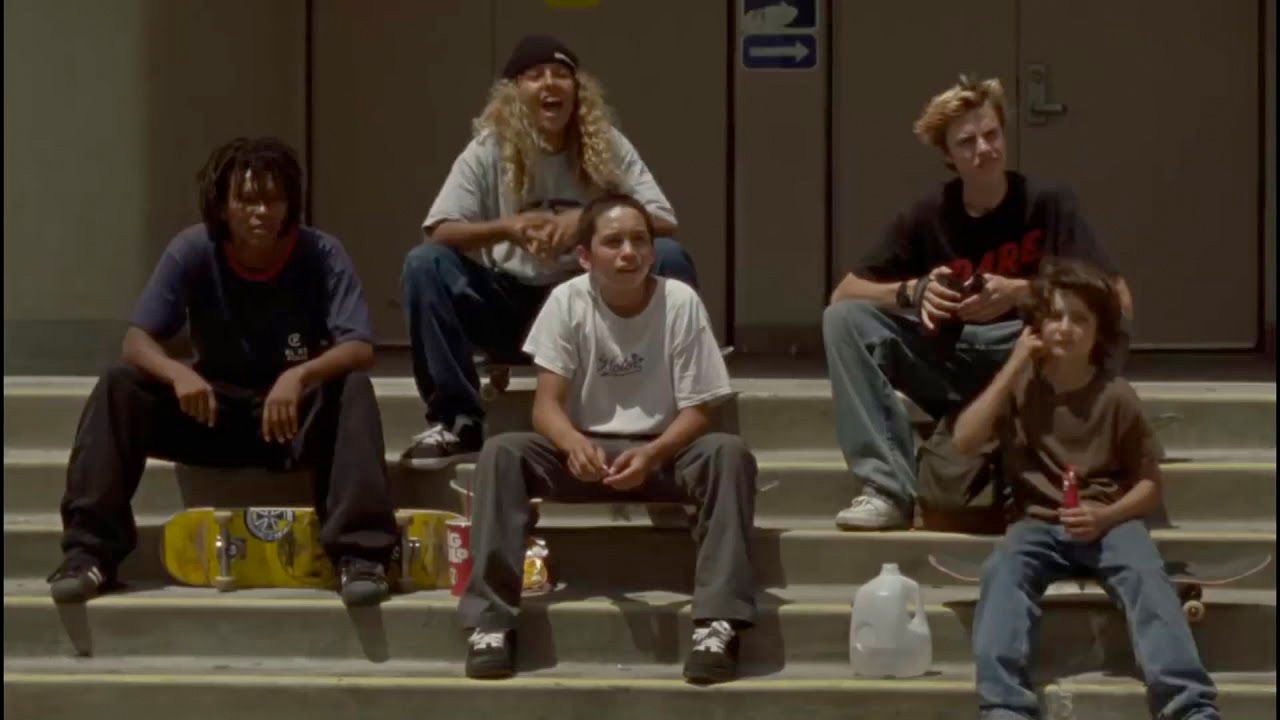
Before you had success with acting, it was always your intention to write and direct, wasn’t it?
Yes, definitely. I always wanted to be a writer and director. The best part of acting is, it’s such an up-close view of how all these writers work; how all these great directors work. You get a front row seat to every department doing their job really, really well. And if you’re annoying, you can ask a lot of questions.
So once you’d written this personal screenplay, how did the experience of directing it and bringing to life live up to the expectations of what you thought directing might be like?
It’s the greatest. It exceeded… It couldn’t have gone better in the sense of all the people involved, the experience, and how true the movie remains to the spirit of why I started writing it. I think so much of moviemaking is protecting the spirit of what you set out to do. The thing I’m proudest of about the movie is, I was very open to following actors and the scenarios and the free-ness of making the movie. But ultimately, no matter what things are changed, the movie that you saw is exactly the spirit of what I set out to make. So I’m very grateful for it.
Did you always intend to have seasoned supporting actors, such as Katherine Waterston and Lucas Hedges, alongside the untrained kids who are at the front of the film?
Yeah. I mean, clearly Katherine and Lucas are world-class, amazing actors. But from the beginning, it was important to know that the actors were kids, and not vice-versa. You know? So, the key to the movie is, it’s Sunny [Suljic] and Na-Kel [Smith] and Olan [Prenatt] and Ryder [McLaughlin] and Gio’s [Galicia] movie. And the world-class actors are part of their world. So it’s not the other way around. It’s all tone. Directing is so much about managing the tone. It was just an amazing tone. And the tone was from those kids. Sunny was such a blessing because he can play in both worlds. He’s the bridge. He’s been in a Yorgos Lanthimos movie with Nicole Kidman [The Killing Of A Sacred Deer]. But he also speaks with Gio in real life. So he was an amazing bridge to connect these very formidable actors and first-time actors who are skateboarders.
How did it feel to direct someone as young as Sunny? Did you find yourself influenced by advice that you were given, or wish you’d been given, as a young actor?
All I tried to do was give them the experience that I wanted. Anything that hurt me about my experience, or was positive about my own experience – in a weird way, it feels like parenting, in the sense where you’re mentoring, or are an older sibling. I tried to give him the dream experience that I would have wanted. And what you learn as a human being is, you know, your parents did their best to give you the experience they would have wanted. What I tried to do, with these young, first-time actors, is to be like: “I want to talk to you the way I’d like to have been spoken to. I want to give you the respect.” When I was a young kid, I would always be upset if someone talked to me like I was a kid. So I’d be like, “OK, I’m going to talk to Sunny… even though he’s young, I’m going to talk to him as my equal. It’s not like I’m going to talk down to him.” And at the same time, keeping an awareness that he’s 11. [laughs]
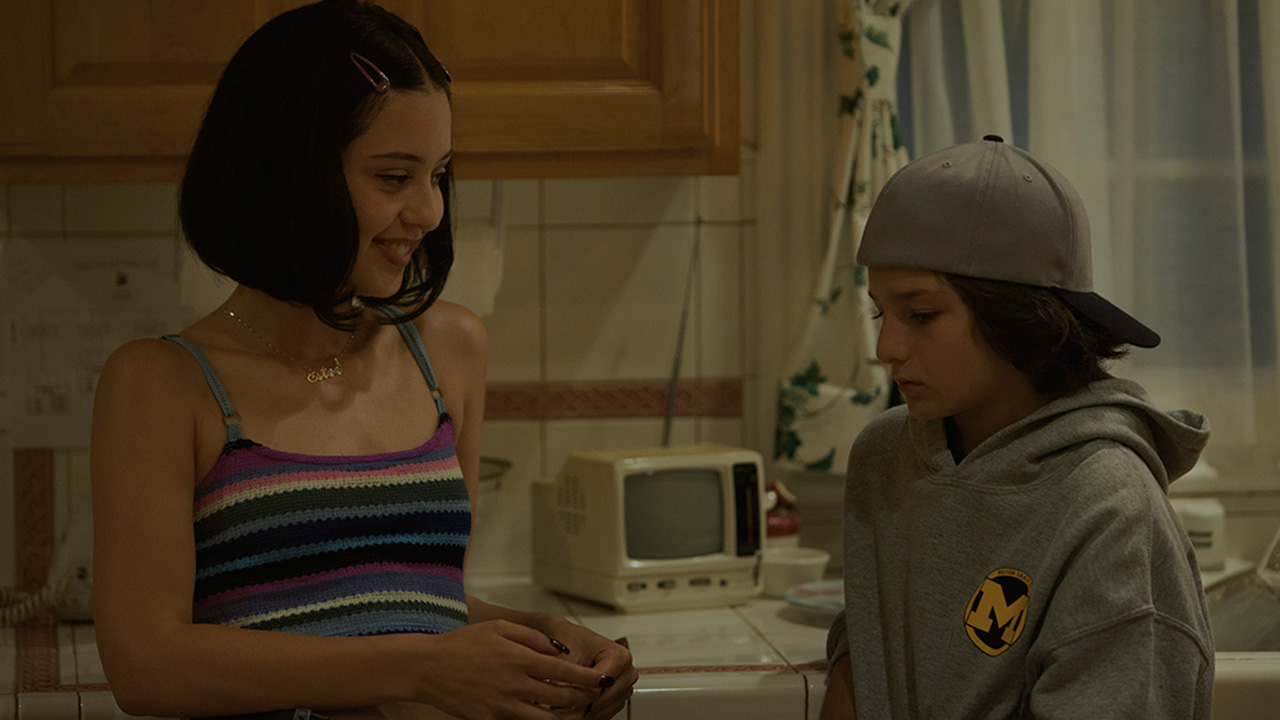
The film doesn’t pull any punches, emotionally or physically. Did you feel protective of Sunny in that respect? There’s some quite tough things for him to tackle.
I felt protective of him. I did. First and foremost, you care about someone as a person. He was my little brother. Of course, I was protective over him. And at the same time, the reason why he’s such an amazing actor and person in life and why he understood the character so much, is because he’s totally fearless. He wasn’t scared of anything. The reason I cast him is because he’s smaller than all the other kids, but he’s 10 feet tall inside.
Was there any fear from either of you when it came to the sex scene? How did you approach that?
Very, very, very respectfully. Everyone needs to feel comfortable, first and foremost. But also, everybody understood why that scene is in the film. It’s not just to be provocative. He’s scared of this experience! The only time he gets joy out of it is when he’s able to use it as currency to rise up in a group of young males. Everyone wanted to illustrate that point.
There’s an authenticity to the way the kids speak to each other in Mid90s that you don’t often see on screen…
I took four years to really deliver and write about people that can’t articulate themselves to one another. What I’ve learned upon watching it again – it’s like, I think the larger part of what I have to say as a filmmaker is trying to express the issues with traditional masculinity, and the problems that’s caused now. So all of these kids’ inability to articulate their emotions – that not only causes problems in the movie, but it causes the problems we’re seeing with other generations now. And the homophobia and the misogyny and the way they speak to each other and the violence: it’s all about, you know, it’s not “masculine” – quote unquote – to be able to talk about how you’re actually feeling. All this ugly behaviour comes as a result of that. That’s the skill of writing, for me, to make it sound like people are talking, but it’s super-deliberate. It’s really, really deliberate, thoughtful inarticulation. [laughs]
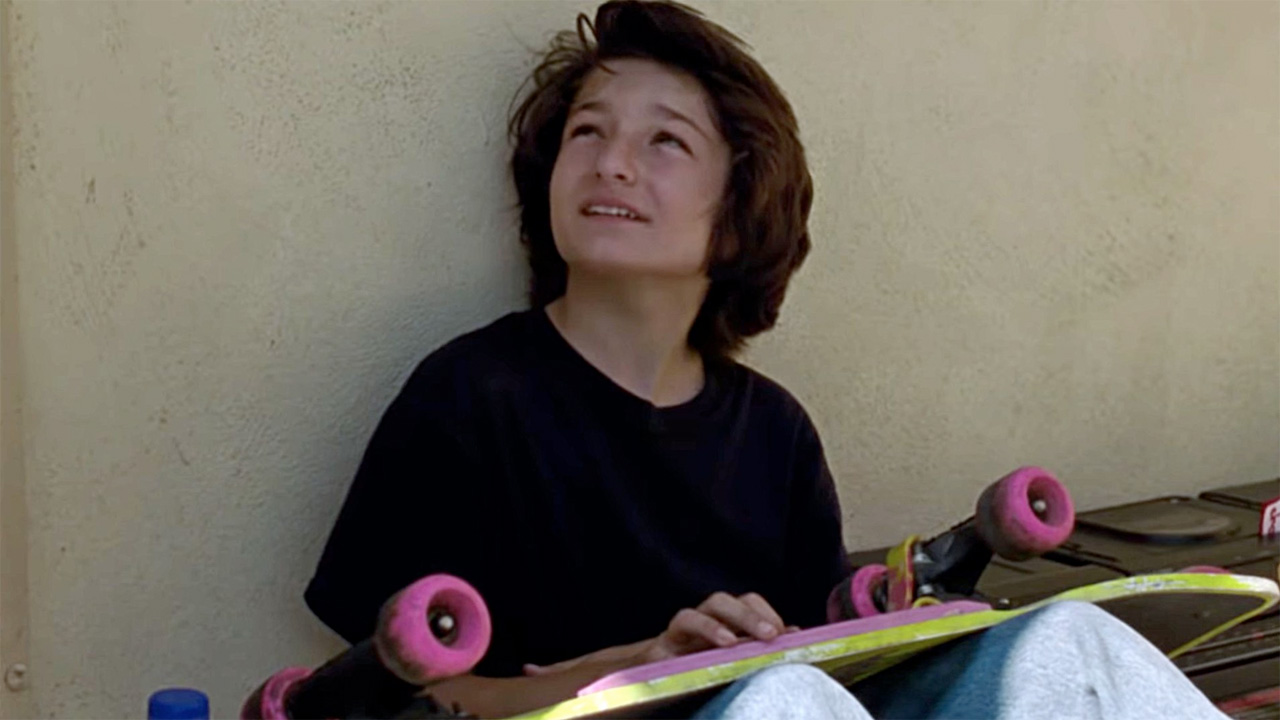
Has this experience of directing changed the way you think you’ll approach acting in the future when you’re working for another director?
Yeah. I think all of this has been a big experience for allowing myself to become the person I am, and not being scared of that. At 35, I feel very happy that I get to really feel comfortable with who I am, what kind of artist I am, what I want to make, and why I want to make it. I’m very lucky for that. And that took a long, long time for me.
So how did you get side-tracked when it was your ambition to start out writing and directing? Did you fall into acting?
Well, I love acting. But also, it’s insecurity. [laughs] If you don’t like doing anything, and someone’s like, “You’re really, really good at this,” it feels amazing to be told you’re good at something. And then I fell in love with it. I loved that feeling. I also loved becoming all these different people. Like the art form of becoming all those different people. It’s expressing the lives and the pain and the joy of people who aren’t you. So you really get to learn about different people. I think that the movie is like seeing perspective on what it’s like to be somebody else, in shoes that you’re not walking in. And I think I really like being forced to not just think about myself, and be like, “Wow, I’m not in this position in life. What does that feel like?”
When you started out, you had a lot of success in comedy, particularly that streak of movies you did with Judd Apatow directing or producing – The 40 Year-Old Virgin, Superbad, Knocked Up, Get Him To The Greek… Did he take you under his wing? What was that working relationship like?
It was great. I mean, I was really young. Judd was really open with his knowledge. It was a time in his life when he made all the things that he wanted to make. It was a great experience. I saw him the other day: it was awesome to see him again.
Superbad was one of the films with which you made your name, and something that really makes that film work is the relationship between you and Michael Cera. Did you guys know each other before the film?
No. We knew each other a little bit, but then we became really good friends. We became really good friends before we started making it. And fortunately, we were already going do it. We naturally hit it off. Michael’s one of my best friends in the world.
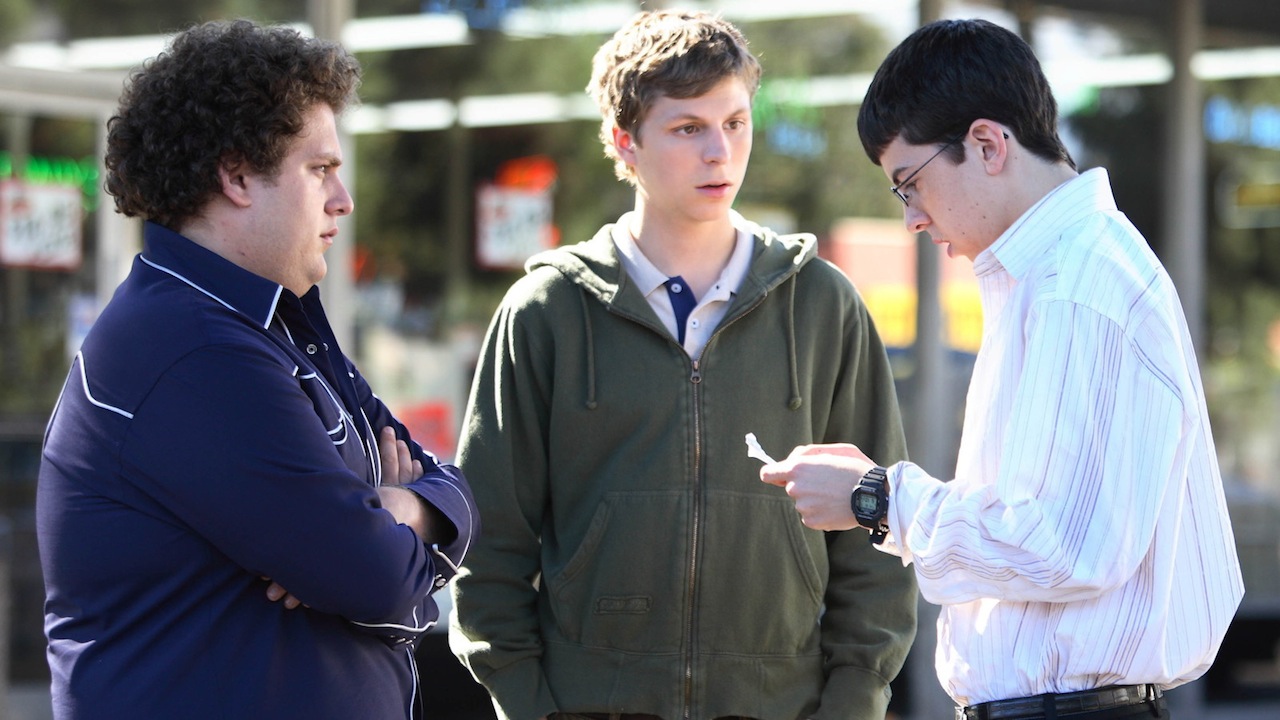
Did you have a masterplan when you started out, or were you winging it when it came to your movie choices?
I think I was so young that I was so thrilled to just make a movie. I always wanted to be a writer and director, but I always knew I’d try to make different kinds of movies. Once Superbad happened, I was very much aware, and started exercising like… you know, really trying to make different things. It wasn’t always the most pleasant journey to do that, because sometimes people don’t want you to do different things.
Did Cyrus feel like a bridge movie between comedy and drama for you?
Yeah. That was definitely the first time I was like, “OK, this feels like something really different” – and more in line with, you know… Superbad and Cyrus, they’re both very different movies, but they both have a deep humanity to them. They’re about people, as opposed to just sort of comedies that are about being funny and stuff. I loved doing Cyrus. I loved making that movie.
Moneyball was the first time a wide audience got to see a really different side to you. How did you land that gig?
It wasn’t hard to get. It wasn’t hard to get the role, because Bennett had seen Cyrus, and he cast me from that. It’s just not people’s expectation, and people feeling – like the internet and shit – they just feel like, “Oh, we know him from one thing. We don’t feel comfortable.” You know, people just want certainty. When they feel uncertain, they get very uncomfortable. So I think that that’s where that come from – wanting people to be what they feel comfortable seeing them as. And as a kid, I didn’t feel comfortable with that. And now it’s been amazing to sort of just… I’m just trying to do the things that mean something to me.
Moneyball was the first of two Oscar nominations as well. Did you find that it changed things for you career-wise and choice-wise when you can put “Academy Award nominee” in front of your name? Did the offers really change after that?
Erm… I don’t know. It’s a hard thing to think about. It’s a hard thing to think about. Erm… [pause] I don’t really know if it did or not. I don’t know [if I felt a big shift]. I kind of kept working.
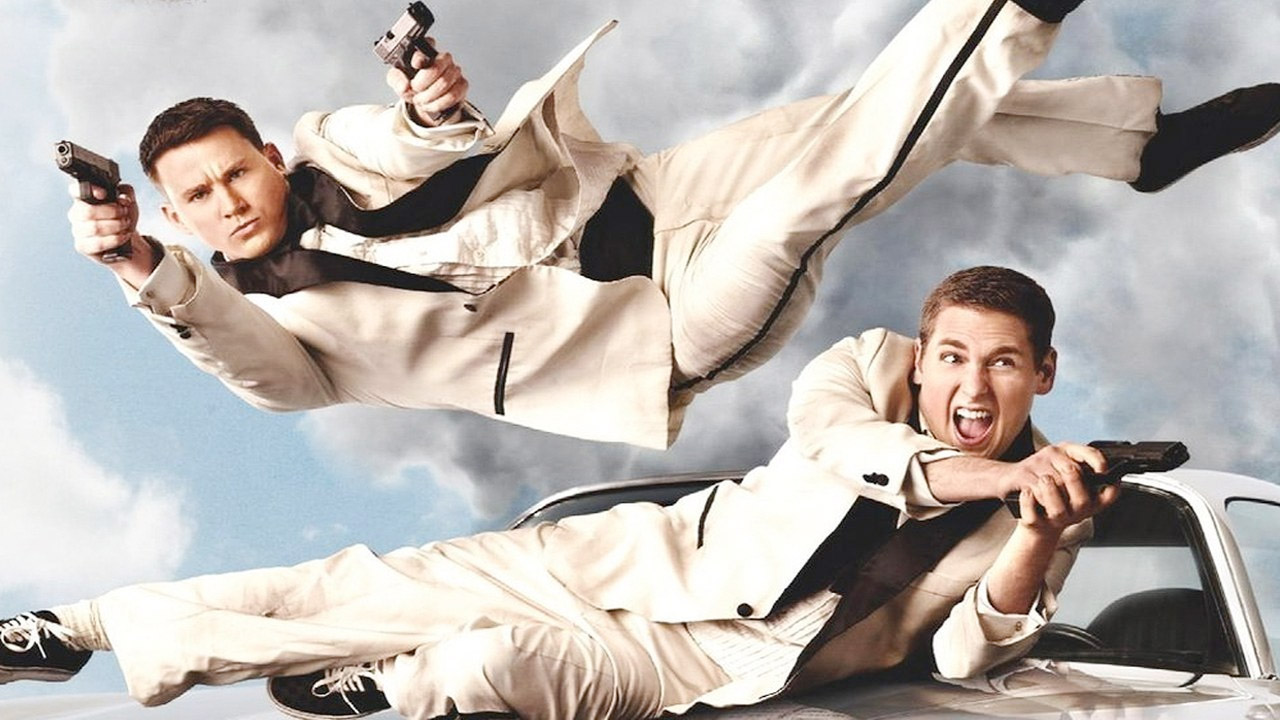
The Jump Street movies feel like another turning point for you, because while they were comedies, it was a different type of action-comedy that became a franchise, and you and had a story credit on those films. What potential did you see there?
I just think to make a big franchise, you have to be able to, like… no one who has any intelligence or self-awareness isn’t obviously making fun of it in some way. You know? So to me, it felt dishonest not to call that out, you know, and to make fun of ourselves for even doing it. And I think the audience appreciated that. And then you surprise them with a movie about two very different people connecting, and they’re surprised that they actually see that, also.
Was that chemistry with Channing Tatum an instant thing?
Yeah, I love Channing. I just think he’s a great person. I’ve been very fortunate. I guess maybe I approach, when I’m acting with someone, like a director, also. I really try and bring out and see the best in these people. But Channing… you know, there’s a reason these people are all movie stars – they’re so charming and fun, and really enjoyable to be around. So I’ve been expressing that joy of what it’s like to bring that out, and to be around these people.
How was your experience on Netflix’s Maniac? Did that feed into Mid90s at all?
Well, I made the film before Maniac, so it didn’t inform the filmmaking of Mid90s. Again, all experiences come… it’s all education, y’know? I try and do things based on what I’ll learn from them. And I had never done a limited series. I’d never played so many characters at once. And I was really excited to work with Emma Stone 10 years later. We’ve remained close friends and it was amazing to start out with someone and then see where you’re both at a decade later. It’s a pretty unique experience that I wanted to take advantage of.
Hopefully Owen and Annie in Maniac are not your Superbad characters 10 years on!
[laughs] That would be a weird 10 years, if that’s where they went to.
The Lego Movie 2 was a lot of fun. Would you like a Green Lantern spin-off?
Uh, I should be so lucky! I love those movies, I love Phil and Chris [Lord and Miller, directors] and everyone involved with those movies. And they’re so good! They just do such a great job with them. It’s always so impressive. I’m just lucky to be a part of them.
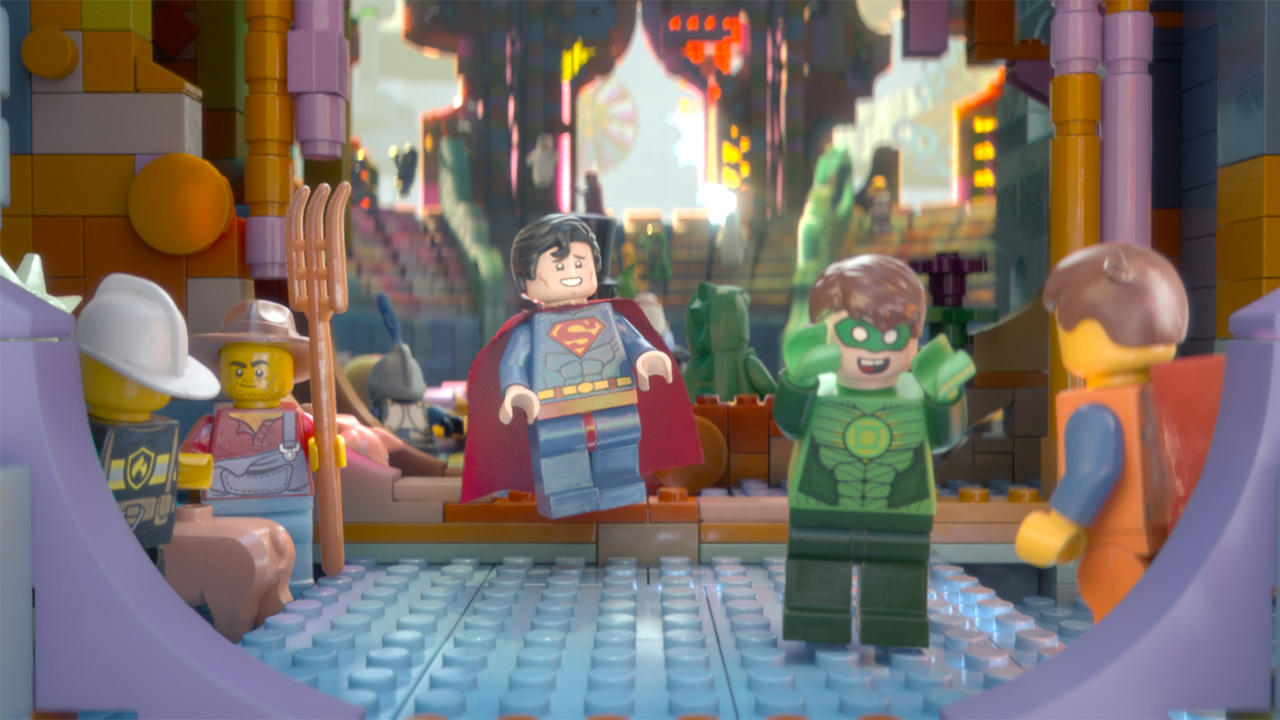
You must have a great relationship with Phil and Chris back to the Jump Street films…
Yeah, I mean that was the first frame of live action they ever shot. And then they went on to make the Lego movies, and asked me to be a part of it, and I just did it because it sounded fun. But it’s really lucky, because those movies and How To Train Your Dragon, they really sustain me being able to make and direct independent films because they’re these big studio movies – and they’re really fun – but they pay you and it’s a really great job. But my nephews often make fun of me because Green Lantern isn’t in them very often! I’m hoping they hook me up with a solo Green Lantern movie!
We’ll put the word out for you…
Thanks! That would be very helpful!
What are your memories of working on The Wolf Of Wall Street?
So many. That was the formative experience of my acting career. There was so much improvisation. I got pushed as an actor so hard working with Leo [DiCaprio] and Margot [Robbie], and I learned so much about filmmaking through Martin Scorsese, so I view that as the best education I ever received, as an actor and a director and a writer.
And when you were an actor working with directors, were you actively seeking advice and trying to absorb lessons? Or was it something you picked up by osmosis?
[laughs] No, it’s not osmosis. It’s definitely aggressive questioning. And I think, you know, they weren’t bothered by it. Because I think, really, the key of doing a movie with… certain young actors were asking me questions all the time, and you can tell who’s really, really interested in it because they wanted to do it. And then you feel good because you’re helping somebody. You’re helping somebody understand a new skill they didn’t have before. I like to hope that they saw how passionate, how truly, truly passionate, I was, and how excited I was to learn.
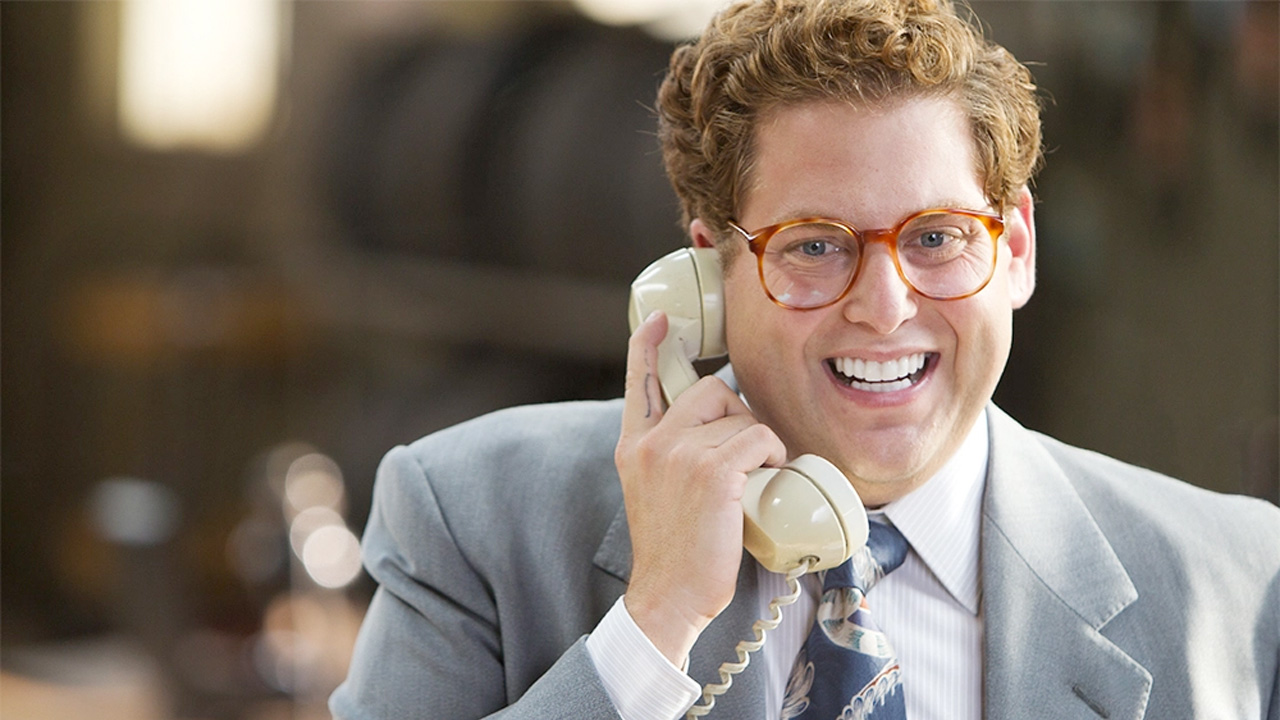
As an actor, you’ve worked with some of the modern masters, including Martin Scorsese, the Coen brothers, Gus Van Sant, Quentin Tarantino, Bennett Miller – is there anything you found that the great directors found in common? Or are they all unique?
They’re all unbelievably talented, but what I think is, they all have expressed the same lesson, which is: they’re movies that they love; that they’re super-proud of what they want; that they know, in their heart, they’re supposed to make – even if no one else sees that. Everything needs to be a passion project. Even if it’s a commercial, you’ve got to find the thing in it that really means something to you.
Acting-wise, we’re going to see you next in Harmony Korine’s The Beach Bum. What can we expect from that?
I love Harmony Korine. I’ve always been a fan of his since forever. I can’t wait to see The Beach Bum. It’s going to be crazy. [laughs]
You’re a self-proclaimed cinephile, but when it comes to writing and directing, do you draw inspiration from other things besides movies?
I just want to see how hard it is to be a person and what personal growth has to do with the stories I want to tell. That’s probably the biggest thing that drives me creatively. So it’s not like I read a science-fiction novel and I go like, “Yeah, I need to make that into a movie.” It’s like, you know, being a person is so challenging and complex. I like hearing about everybody going through that, and what that feels like.
Is the dream for you, to be directing permanently from now on, and to always have a project in a stage of production? Is that the plan?
I want to try to do anything that I want to give all myself to. There’s a lot of new things that I’m doing. I’m working in fashion. I’m working in other areas of life. And filmmaking and acting. And photography. I’m very lucky. So there are things I’m doing. Filmmaking, first and foremost, is what I love the most, but I just hope to always be creating, because it’s such a great luxury of my life that I get to make things.
Mid90s opens in the UK on April 12.
This feature originally appeared in our sister publication Total Film magazine, issue 283. Pick up a copy now or subscribe so you never miss an issue.
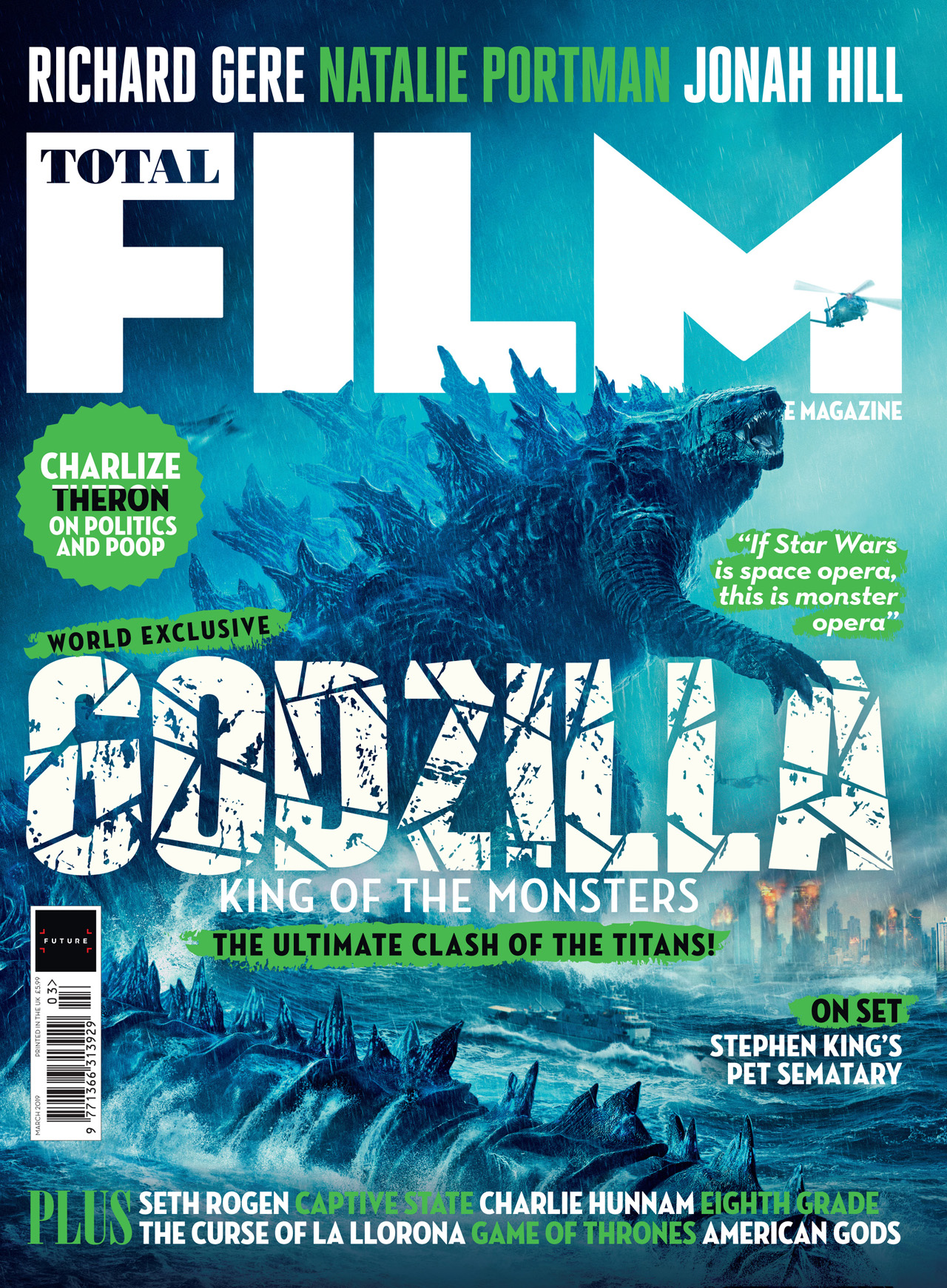
Matt Maytum is the former Editor of Total Film magazine. Over the past decade, Matt has worked in various roles for TF online and in print, including at GamesRadar+. Bucket-list-ticking career highlights have included reporting from the set of Tenet and Avengers: Infinity War, as well as covering Comic-Con, TIFF and the Sundance Film Festival.
